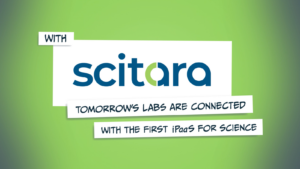In today’s digital age, where technology continues to transform various industries, the concept of a paperless laboratory is gaining momentum. Laboratories across diverse fields are recognizing the advantages of replacing traditional paper-based processes with digital solutions. In this blog, we will explore the numerous benefits of embracing a paperless laboratory and how lab data automation and lab instrument integration revolutionizes scientific research and operational efficiency.
Enhanced Data Integrity and Accessibility:
By adopting a paperless approach, laboratories can ensure data integrity and accessibility. Digital data capture and storage significantly reduce the risk of human errors, transcription mistakes, or loss of important information. Researchers can directly input data into electronic systems, eliminating the need for manual transcription. Moreover, digital records are easily searchable, retrievable, and shareable, promoting collaboration and facilitating knowledge transfer.
Improved Efficiency and Time Savings:
Paper-based processes often involve time-consuming tasks, such as data entry, organizing, and archiving. With a paperless laboratory, these tasks are automated and streamlined. Electronic laboratory notebooks (ELNs), laboratory information management systems (LIMS), and electronic data capture (EDC) tools allow for efficient data collection, analysis, and reporting. Researchers can focus more on their core work, accelerating experimentation, analysis, and decision-making processes.
Cost Reduction and Sustainability:
A paperless laboratory significantly reduces the consumption of paper, ink, and other physical supplies associated with traditional workflows. This translates to cost savings in purchasing and storage expenses. Additionally, a paperless approach aligns with sustainability goals by reducing environmental impact, conserving natural resources, and minimizing waste. Laboratories can contribute to a greener future while improving their bottom line.
Enhanced Collaboration and Documentation:
Digital platforms enable seamless collaboration among researchers, teams, and even geographically dispersed laboratories. Multiple users can access, review, and edit data simultaneously, promoting real-time collaboration and knowledge sharing. Digital documentation allows for comprehensive and standardized record-keeping, ensuring traceability and auditability of scientific processes. Furthermore, digital platforms facilitate seamless integration with other laboratory systems, such as instruments, analysis tools, and data repositories.
Advanced Data Analysis and Insights:
Digital data offers opportunities for advanced analysis and insights. Integrated data management systems enable researchers to aggregate and analyze vast amounts of data from multiple experiments and sources. Powerful analytics tools and machine learning algorithms can be applied to uncover patterns, correlations, and hidden insights, leading to more informed decision-making and scientific discoveries. The ability to leverage big data in a paperless laboratory with lab instrument integration opens new avenues for innovation and breakthroughs.
Regulatory Compliance and Data Security:
Laboratories are subject to various regulatory requirements, and a paperless approach aids in compliance. Electronic systems allow for easy tracking of data, metadata, and experimental parameters, facilitating compliance with regulations and standards. Additionally, digital platforms can implement robust security measures to protect sensitive data, including user access controls, data encryption, and audit trails. This ensures data security and confidentiality, reducing the risk of data breaches or unauthorized access.
Embracing a paperless laboratory offers a multitude of benefits that positively impact scientific research, operational efficiency, collaboration, and sustainability. From improved lab data integrity and accessibility to advanced analytics and compliance, the advantages of going digital are clear. Laboratories that transition to paperless workflows, integrate lab instruments seamlessly, and embrace a digital laboratory approach are well-positioned to enhance productivity, accelerate discoveries, and contribute to a more sustainable and connected scientific community. The future of laboratory operations lies in the paperless realm, and now is the time to embrace it.
